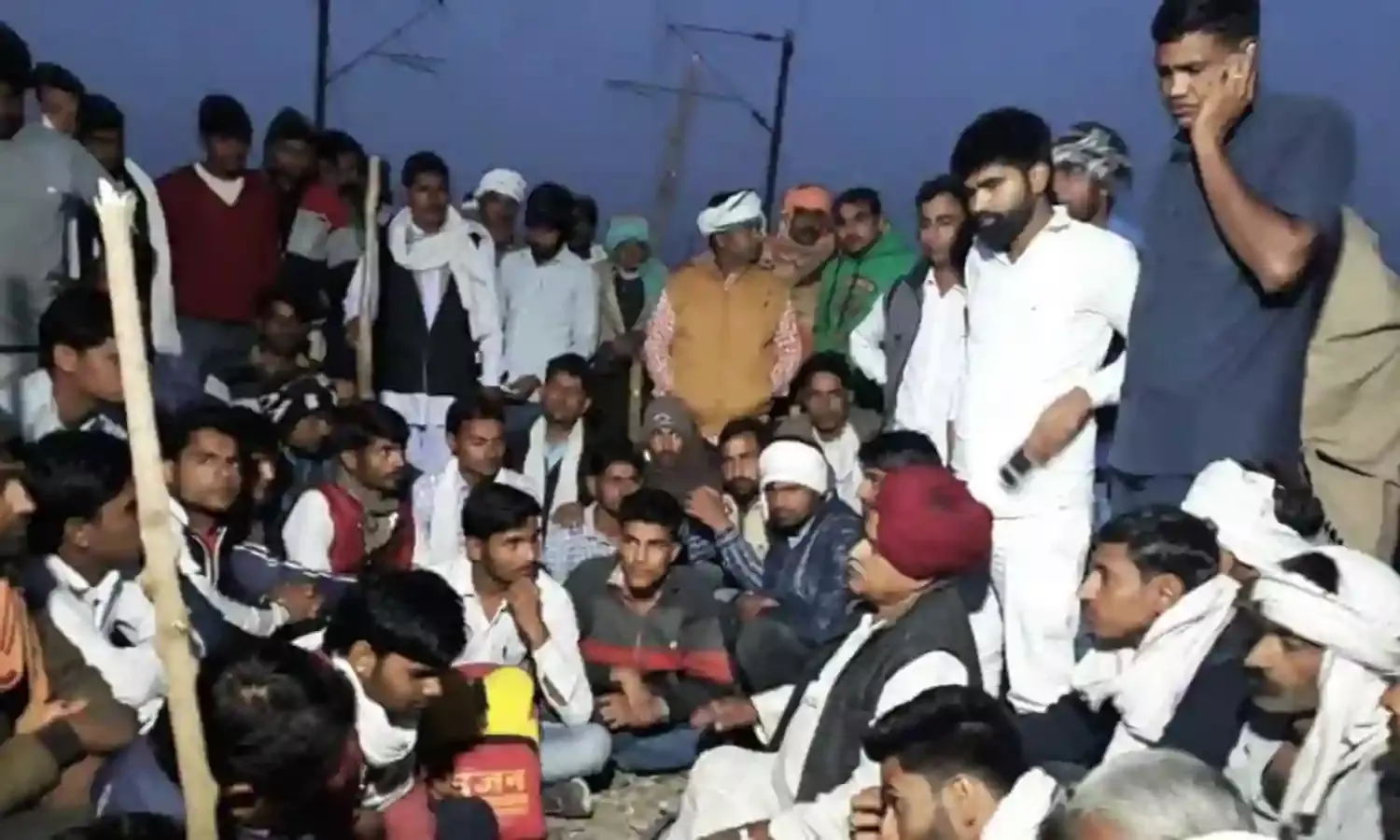Congress Now Faces Gujjar Agitation in Rajasthan, Roads and Railways Blocked
CM Gehlot may hold talks with PM Modi

DAUSA/SAWAI MADHOPUR/NEW DELHI: The Congress government in Rajasthan under the leadership of Ashok Gehlot and Sachin Pilot who is seen as close to Gujjars, finds itself in a tricky situation with the ongoing Gujjar agitation.
Led by army veteran Colonel Kirori Bainsla, the Gujjar community agitation is now in its fifth day. Protesters have refused to budge from railway tracks and national highways in the state. According to Col Bainsla, ‘This time we won't leave the tracks until our demands are met,’ adding, ‘It's not just citizens who are facing a problem [with blocked roads]. The Gujjar community have also faced problems and we will make sure the death of 72 Gujjars doesn't go in vain.’
Since 2006, Gujjars in Rajasthan have been demanding reservation in government jobs and educational institutes. The Congress in its 2018 assembly election manifesto and campaign promised 5% reservation to the Gujjars and four other communities, under the Special Backward Class or SBC category.
The Citizen spoke to the Congress MLAs from the Dausa and Sawai Madhopur districts about the ongoing situation. Gajraj Khatana said, ‘The situation is being monitored by CM Ashok Gehlot and soon talks will be held with the Gujjar community.’ Requesting anonymity another Congress MLA said that ‘the chief minister may hold talks with PM Modi regarding the ongoing situation.’
The Gujjar reservation issue has played a strong role in deciding state governments in Rajasthan.
Since 2006, across various agitations and protests the deaths of 72 Gujjars and over Rs.100 crore of damage to public property have been reported.
In 2008 the Vasundhara-Raje led BJP government had tabled a bill granting 5% reservation to Gujjars, Gadia Luhars, Rebaris and Banjaras under the SBC category. A Gujjar Mahapanchayat called for the implementation of this Reservation Bill passed in the assembly, which also provided for 14% reservation to the Economically Backward Classes.
As the bill took the total reservation quota past the 50% ceiling mandated by the Supreme Court, the Rajasthan High Court granted a stay on its implementation.
In 2012 the Gujjar community protested again and demanded the bill’s implementation. After phases of negotiations between the Ashok-Gehlot led government and Col Bainsala, the Gujjar community reached an accord with the government. Gujjars would receive 1% reservation under the SBC category within the 50% reservation quota. The remaining 4% reservation was put on hold till the court verdict.
However, the Rajasthan High Court struck down the bill. When it came to power in 2014 the BJP tabled the same bill again in September 2015. The Rajasthan High Court struck it down again in December 2016.
Gujjars have been covered under the Other Backward Classes or OBC category since 1994. Beginning in 2006, however, they demanded that their community be given reservations under the Scheduled Tribe category. After the Chopra Commission ruled that Gujjars cannot be considered a Scheduled Tribe, they settled for 5% reservation under a new SBC category.



